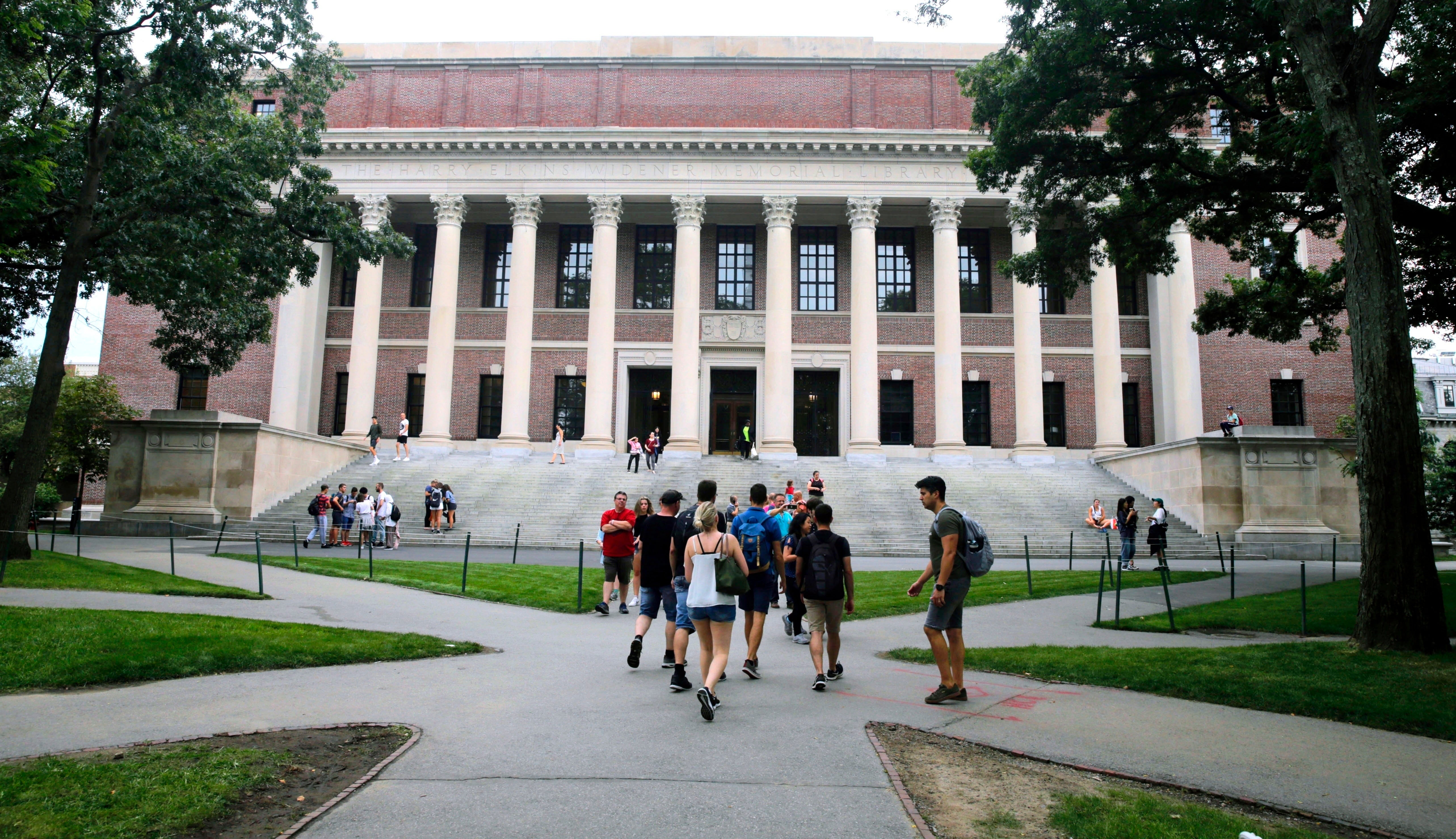Harvard admissions didn’t discriminate against Asian-Americans, appeals court finds
Affirmative action narrowly survived in the Supreme Court last time around, but that was before the Trump administration appointed three justices

Harvard University’s admissions process did not illegally discriminate against Asian-Americans, a federal appeals court held on Thursday, preserving for now the use of limited racial preferences in university admissions, but setting up a potential showdown in the newly reconstituted US Supreme Court.
“Today’s decision once again finds that Harvard’s admissions policies are consistent with Supreme Court precedent, and lawfully and appropriately pursue Harvard’s efforts to create a diverse campus,” Rachael Dane, a spokesperson for Harvard, told The New York Times. “As we have said time and time again, now is not the time to turn back the clock on diversity and opportunity.”
Schools are allowed to use race as one factor of many in university admissions, but can’t explicitly discriminate or establish racial quotas. The suit against the elite university, from anti-affirmative action group Students for Fair Admissions, argued that its admissions process had a de facto “racial penalty” against Asian-Americans.
They argued the group had the highest test scores and grades but were let in at lower rates than other races because of a subjective personality ranking on their applications. It also argued that admissions data showed the university had a kind of shadow quota system, keeping a fairly consistent racial balance of students across the years.
Edward Blum, the group’s president, said in a written statement “our hope is not lost" after the ruling.
“This lawsuit is now on track to go up to the U.S. Supreme Court where we will ask the justices to end these unfair and unconstitutional race-based admissions policies at Harvard and all colleges and universities.”
The last time the Supreme Court considered affirmative action was in 2016, when it narrowly decided to preserve the admissions program at the University of Texas, which automatically admits top students from the state as well as considering the race of certain students. In that case, a white student had challenged the system. Since then, the liberal Ruth Bader Ginsburg died, and the Trump administration has appointed three more conservative justices to the high court, as well accused affirmative action systems at places like Harvard and Yale of discriminating against Asian-American and white students.
It’s the second defeat in court for the suit, after a federal court in 2019 certified Harvard’s admissions policy, which considers a number of factors in admissions and occasionally gives a “tip” to certain students based on their race when comparing similar applicants, at times giving a preference to Black and Latino students.
“Diversity,” Judge Allison D. Burroughs wrote in the initial ruling, “will foster the tolerance, acceptance and understanding that will ultimately make race conscious admissions obsolete.”
Students for Fair Admissions had argued that a statistical analysis of more than 160,000 student records over nearly a decade showed that the admissions office systematically under-accepted Asian-Americans given their qualifications.
The original trial also shined a light on other controversial parts of Harvard’s admissions process, including special consideration given to athletes, the children of alumni, and those related to wealthy donors and the politically connected.
As the Harvard case likely heads towards the Supreme Court, Students for Fair Admissions is also challenging other affirmative action policies at institutions like the University of North Carolina.
Affirmative action jurisprudence in the US has long focused on ending legal and implicit discrimination against Black people, or challenging the measures put in place to do just that. Opponents of racial consideration, however, are now increasingly looking to the treatment of Asian-Americans in the system for future cases—or, depending on one’s perspective, cynically using affirmative action as a wedge issue for conservatives to divide minority groups.
It’s part of a broader reckoning around equity in higher education in the US that has seen major university systems like the University of California, the largest in the country, abandon the SAT and ACT standardized tests in 2020 because they argue they discriminate against less privileged students on race, class, and disability lines.
Join our commenting forum
Join thought-provoking conversations, follow other Independent readers and see their replies
Comments
Bookmark popover
Removed from bookmarks